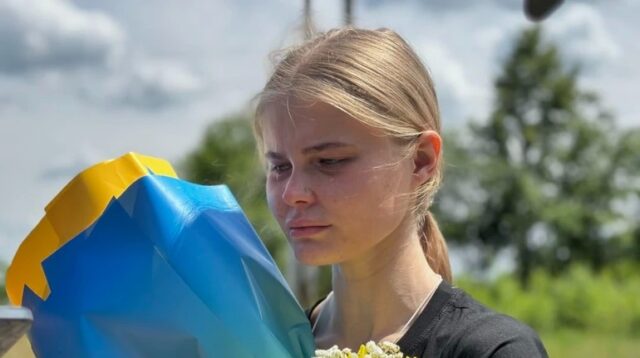### Survivor from Russian Captivity Returns Home
Mariana Chechelyuk, an investigator from the Mariupol National Police, has emerged from a dark chapter in her life, having spent two grueling years in Russian captivity. This gripping tale, reported by «Life.Pravda,» is not just about her return; it reflects the broader human experience of resilience and recovery in times of unimaginable hardship.
### A Tale of Survival
Chechelyuk’s ordeal began when she and her younger sister sought shelter from the relentless bombardment at the Azovstal Steel Plant amid the chaos of war. Tragically, their refuge turned into a nightmare as they were captured by Russian forces. In a heartbreaking twist, the sisters were separated in a filtration camp—a reality that no family should ever have to face. Chechelyuk was subsequently transferred to various detention centers in Donetsk and other locations, where the conditions were beyond anything she could have imagined.
Imagine this: being torn from your loved ones during a war, enduring not only physical confinement but also emotional isolation. It resonates deeply in our human experience—many of us have faced isolation in different forms, whether during family separations or even during the pandemic’s height. Chechelyuk’s story reminds us how incredibly vital our connections to one another are.
### A Mother’s Heartbreak
The heart-wrenching details shared by Mariana’s mother reveal a chilling reality. The horrors her daughter faced included torture, starvation, and beatings—experiences that no one should endure. Such accounts are stark reminders of the psychological and physical scars that can linger long after such trauma ends. In fact, studies show that former captives often contend with long-term mental health issues, including PTSD, anxiety, and depression. According to the World Health Organization, nearly 1 in 5 individuals exposed to traumatic experiences will develop mental health conditions.
### Community Response
As news of Mariana’s return spreads, the community responds with an outpouring of support. Friends, family, and colleagues from the police force are uniting to help her navigate the often challenging path of recovery. This communal effort highlights the crucial role that social support plays in healing. Research shows that strong community bonds can significantly enhance well-being and recovery rates for trauma survivors.
— **Community Initiatives**: Local organizations are mobilizing to create programs aimed at supporting Chechelyuk and others who have experienced similar trauma. This includes:
— **Counseling Services**: Providing psychological support to help cope with past experiences.
— **Health and Wellness Programs**: Focusing on physical rehabilitation and overall health.
— **Peer Support Groups**: Facilitating shared experiences among survivors to foster connection and healing.
### Focus on Rehabilitation
Experts stress the importance of a comprehensive rehabilitation process for survivors like Chechelyuk. This encompasses not just addressing her physical health issues, such as chronic bronchitis, but also her psychological well-being. Trauma-informed care is essential—this approach acknowledges the widespread impact of trauma and emphasizes creating a safety net for healing.
Local health professionals are working diligently to develop support systems that address both immediate health needs and long-term wellness strategies. The goal is to ensure that survivors feel empowered to reclaim their lives and work towards a hopeful future.
### A Testament to the Human Spirit
Mariana Chechelyuk’s courageous journey is a powerful testament to the resilience of the human spirit. Her story exemplifies the strength found in community solidarity and the vital importance of compassion in times of crisis. As we reflect on her experiences, may we remember the collective responsibility we share to support those affected by conflict and trauma—because at the end of the day, we all share a common humanity.
In the face of adversity, let’s continue to foster environments filled with empathy and support, ensuring that survivors can heal, thrive, and inspire others with their resilience.





